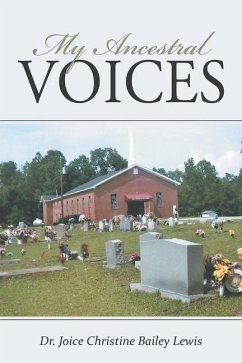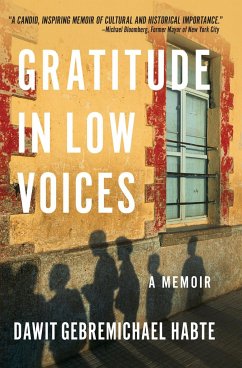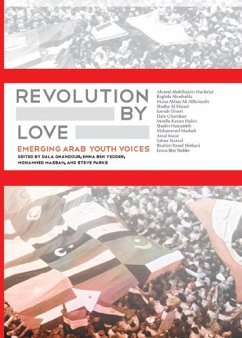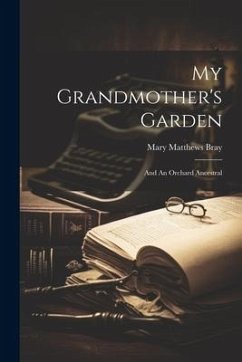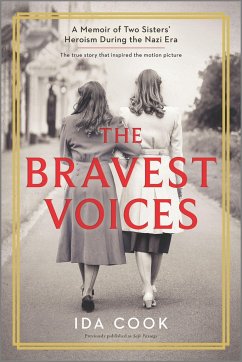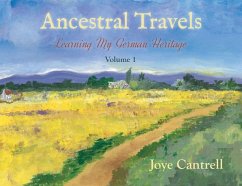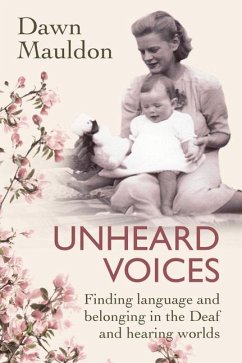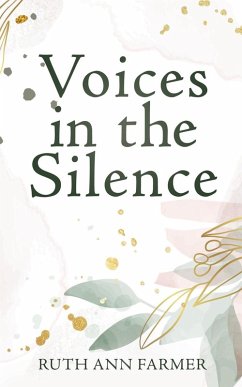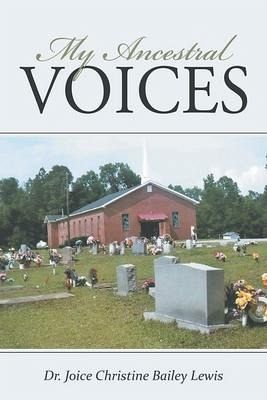
My Ancestral Voices
Versandkostenfrei!
Versandfertig in über 4 Wochen
14,99 €
inkl. MwSt.
Weitere Ausgaben:

PAYBACK Punkte
7 °P sammeln!
Dr. Joice Christine Bailey Lewis wrote My Ancestral Voices at the age of seventy-four. She tells stories about people and events that occurred in the Alabama community where her ancestors lived for five generations. Dr. Lewis uses autobiographies and biographies to describe events by details and dialogue that are either true, assumed, or plausible. Dr. lewis, a member of the fifth generation, tells how she drew strength from the historical accounts of survival of people through slavery, Reconstruction, Jim Crow, racial segregation, educational inequality, sharecropping, the civil rights moveme...
Dr. Joice Christine Bailey Lewis wrote My Ancestral Voices at the age of seventy-four. She tells stories about people and events that occurred in the Alabama community where her ancestors lived for five generations. Dr. Lewis uses autobiographies and biographies to describe events by details and dialogue that are either true, assumed, or plausible. Dr. lewis, a member of the fifth generation, tells how she drew strength from the historical accounts of survival of people through slavery, Reconstruction, Jim Crow, racial segregation, educational inequality, sharecropping, the civil rights movement, the Second World War, Northern and Western Diaspora, and her ancestors beating great odds to succeed in landowning and community development and in the fields of medicine, law, education, and business. The Holly Springs Missionary Baptist Church was erected by the first generation of ancestors who were all freed slaves. It is still in service to the community of Romulus (Ralph) Alabama. The church stands as a monument to its members, who rose up from slavery to create a lasting legacy of hope, love, and family.





